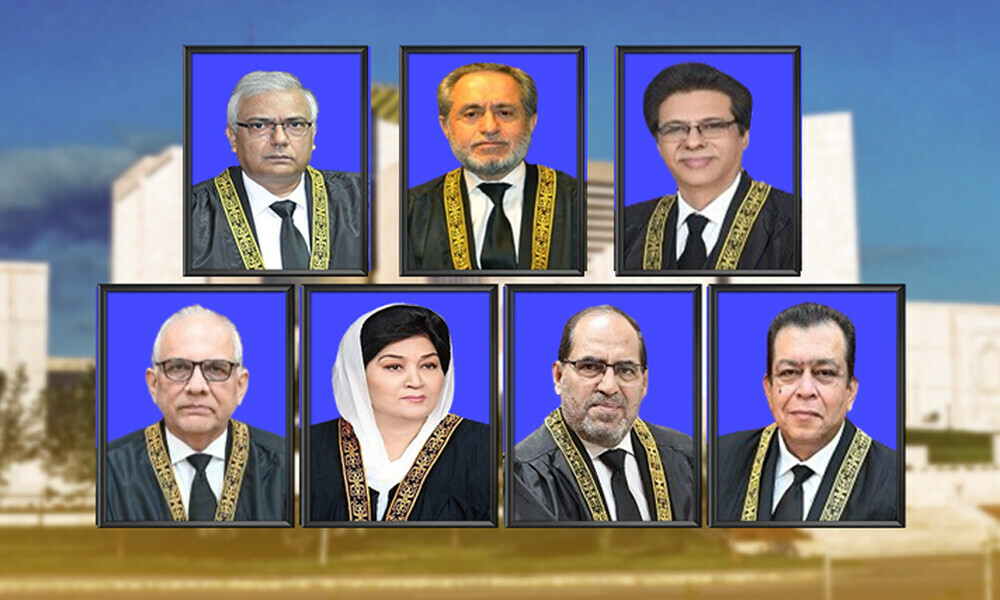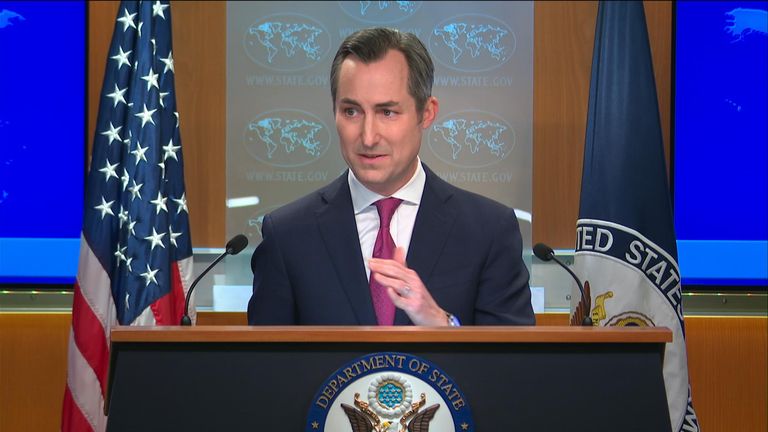PTBP Web Desk
The Supreme Court of Pakistan’s (SC) constitutional bench has conditionally allowed military courts to announce reserved verdicts for 85 civilians detained for their alleged involvement in the May 9 riots. This decision was made on Friday by a seven-member constitutional bench headed by Justice Aminuddin Khan and including Justices Jamal Khan Mandokhail, Muhammad Ali Mazhar, Syed Hasan Azhar Rizvi, Naeem Akhtar Afghan, Mussarat Hilali, and Shahid Bilal Hassan.
The May 9 riots occurred following the arrest of former Prime Minister Imran Khan, leading to significant unrest and damage to key military and state installations. Protesters targeted the Corps Commander’s residence, known as Jinnah House in Lahore, and the gates of the military’s General Headquarters (GHQ) in Rawalpindi. The civilians arrested in connection with these events faced charges under the Pakistan Army Act, raising debates on the legitimacy of such trials.
During the proceedings, the Supreme Court emphasized leniency where applicable. Justice Aminuddin Khan directed that suspects eligible for sentence concessions should be released. He further stated that those who cannot be released must be moved to prisons once their sentences are pronounced by the military courts.
The bench’s decision comes amidst broader scrutiny of military trials for civilians. Justice Jamal Khan Mandokhail raised critical questions during Thursday’s hearing, questioning the legal basis for trying civilians under the Army Act. He pointed out that Article 8 of the Constitution is central to understanding the legitimacy of these trials, asking, “How can a person not in the armed forces be tried under the Army Act?”
The case has seen significant legal debate since the May 9 incidents. Last year, the Supreme Court initially declared the military trials of civilians null and void. However, in a notable reversal on December 13, 2023, the SC conditionally suspended its previous ruling, allowing military courts to proceed with certain conditions.
This decision reflects ongoing tensions between civilian judicial oversight and military jurisdiction. It also underscores the challenges in handling cases involving civilians accused of attacking military installations.
The 85 civilians currently in custody have awaited verdicts reserved by military courts. The SC’s decision provides a path forward, albeit conditionally. Justice Aminuddin’s directives aim to balance judicial fairness with the need for accountability in cases of national security.
The May 9 riots remain a politically charged issue in Pakistan. Imran Khan’s arrest acted as a flashpoint for widespread protests, with his supporters accused of targeting military and state properties. The subsequent legal actions, including trials under the Army Act, have drawn criticism from human rights groups and legal experts who argue that civilians should be tried in regular courts.
Justice Mandokhail’s observations during Thursday’s proceedings highlight these concerns. He emphasized the importance of constitutional protections and raised questions about the broader implications of military trials for civilians.
As the Supreme Court’s decision allows military courts to announce verdicts, the focus will shift to the implementation of these rulings. The SC’s emphasis on leniency and fairness will be closely watched as the process unfolds. The decision also sets a precedent for handling cases involving civilians in the context of national security, balancing constitutional rights with state interests.




